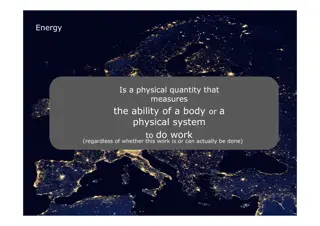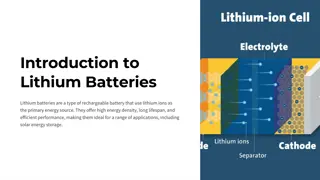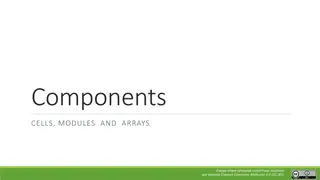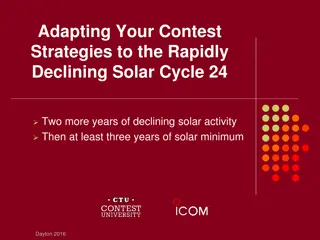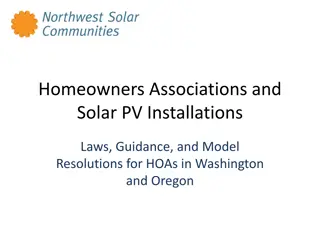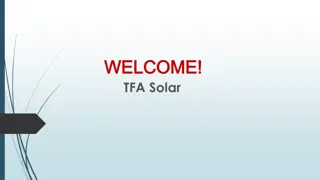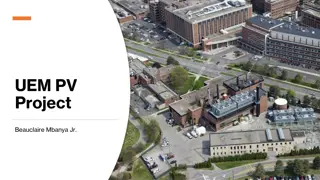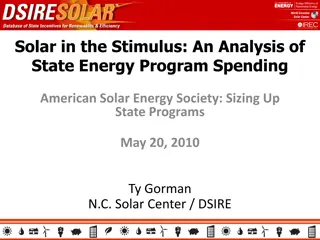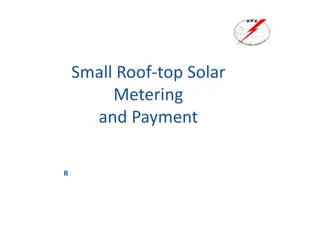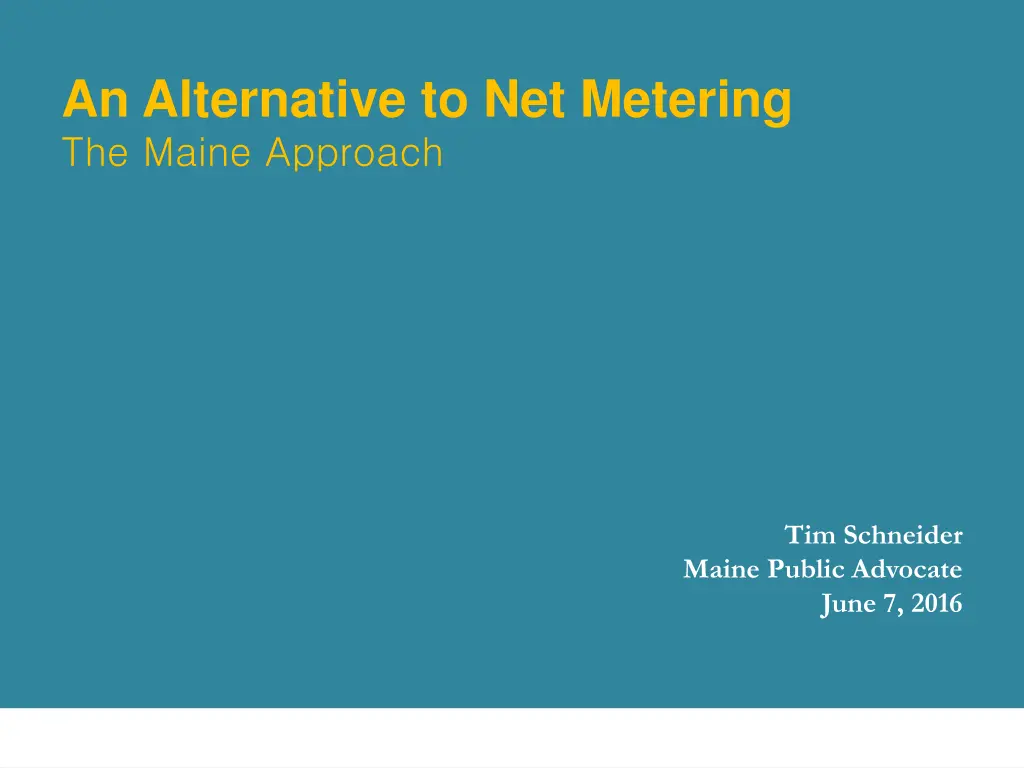
An Alternative Approach to Net Metering in Maine
Explore the Maine approach to net metering as presented by Tim Schneider, the Maine Public Advocate. Discover the background, principles, successes, and challenges of the proposed legislation aimed at promoting solar energy adoption in the state.
Download Presentation

Please find below an Image/Link to download the presentation.
The content on the website is provided AS IS for your information and personal use only. It may not be sold, licensed, or shared on other websites without obtaining consent from the author. If you encounter any issues during the download, it is possible that the publisher has removed the file from their server.
You are allowed to download the files provided on this website for personal or commercial use, subject to the condition that they are used lawfully. All files are the property of their respective owners.
The content on the website is provided AS IS for your information and personal use only. It may not be sold, licensed, or shared on other websites without obtaining consent from the author.
E N D
Presentation Transcript
An Alternative to Net Metering The Maine Approach Tim Schneider Maine Public Advocate June 7, 2016 October 8, 2015 1
Background Maine: 20 MW of solar, mostly residential 1% review trigger Value of Solar Study Divided Legislature, Governor AMI deployment ISO New England markets 2 2 Office of the Public Advocate | State of Maine
Background We won! Through stakeholder process and subsequent negotiations, presented draft legislation supported by utilities, Maine OPA, every environmental advocacy group in Maine and the solar industry Build 250 MW of solar over 5 years across four different market segments: residential, C&I, community and grid scale End to net metering Provide savings to ratepayers Passed both houses, unanimous in Republican controlled Senate! 3 3 Office of the Public Advocate | State of Maine
Background We lost! Governor vetoed, veto sustained in Maine House by two votes Primary opponents: national solar groups and Governor 4 4 Office of the Public Advocate | State of Maine
Principle #1: Separate compensation for distributed generation from retail rates. How we did it: How we did it: Set price that DG customers will receive for exports under a long term contract Rates set at a level necessary to achieve installation targets Customers have option of offsetting self- consumption or buy-all sell-all 5 5 Office of the Public Advocate | State of Maine
Principle #2: Compensation should decrease as the price of solar decreases. How we did it: Capacity-based step downs Rates for new customers may adjust as needed to meet installation targets Automatic adjustment mechanism allows price increases if installations <85% of installation targets for a given six month period. 6 6 Office of the Public Advocate | State of Maine
Principle #3: Offer predictability to participating customers, industry, and all ratepayers How we did it: How we did it: Participating customers: Long term contract at specified rate Existing customers grandfathered for 12 years, or allowed to opt-in to long term contract Solar industry: Capacity-based stepdowns offer predictable pricing glide path 5 year program, with guaranteed installation targets All Ratepayers: Total procurement amount set in statute Price to be paid bounded by cap, step down mechanisms 7 7 Office of the Public Advocate | State of Maine
Principle #4: Fairly and transparently allocate costs and benefits across all ratepayers. How we did it: How we did it: Monetize all benefits in applicable markets (energy, capacity, RECs) Difference between monetized benefits and contract price = ratepayer subsidy/benefits Can compare net costs to estimates of non-monetized value Allocate these costs/benefits across all ratepayers through stranded cost mechanism 8 8 Office of the Public Advocate | State of Maine
Principle #5: Provide opportunities for all customers to participate How we did it: How we did it: Community solar Commercial and industrial program 9 9 Office of the Public Advocate | State of Maine
Principle #6: Develop and implement policies in a collaborative and transparent process How we did it: How we did it: Introduce white paper outlining approach Legislative resolve directing PUC stakeholder process Multi-party stakeholder process with iterative policy development and negotiations Report to Legislature, followed closely by implementing legislation 10 10 Office of the Public Advocate | State of Maine
Takeaways There are ways to support solar that nearly all stakeholders can support Takes time, patience, and a lot of collaboration Most or all of the principles can adopted in other states, even those with different market structures Setting up the right policy platform upfront can save many headaches down the road 11 11 Office of the Public Advocate | State of Maine
Thank you. tim.schneider@maine.gov 12 Office of the Public Advocate | State of Maine




